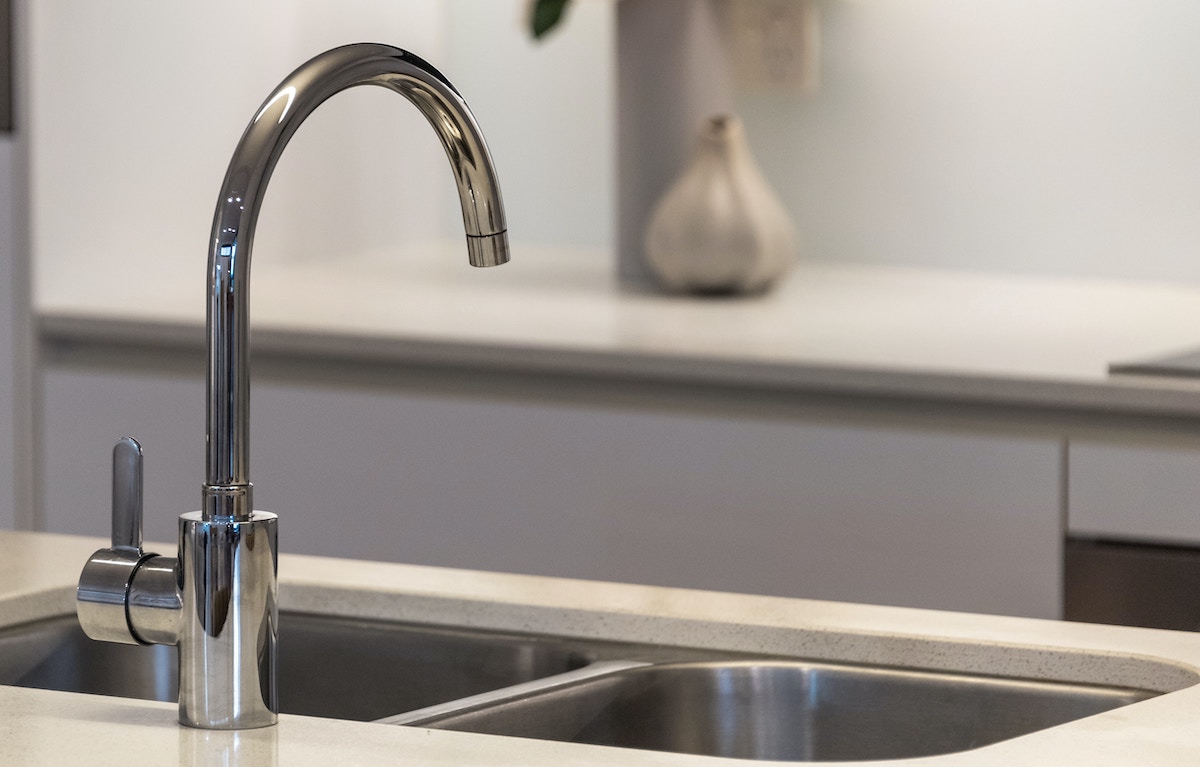How to Descale a Boiling Water Tap

If you're a proud owner of a boiling water tap, you'll agree that it's a remarkable piece of technology, designed to bring convenience and efficiency to your kitchen.
However, like any appliance, it requires a bit of care and attention to keep it in tip-top shape.
One common issue that could affect the performance and lifespan of your tap is limescale.
Especially if you live in a hard water area, limescale buildup can lead to blocked filters and reduced water flow.
Click here to view our range of Instant Boiling Water Taps.
How to Descale a Boiling Water Tap
Descaling a boiling water tap involves removing the accumulation of limescale from its various components.
Limescale is a hard, chalky deposit made up of calcium carbonate that can build up in your tap, especially if you live in a hard water area.
Here's how to descale your boiling water tap:
Materials Needed:
- White vinegar or a suitable descaling agent.
- A bowl.
- A soft cloth or sponge.
- A toothbrush (optional).
Steps:
- Safety First: Before you begin the descaling process, make sure to switch off and unplug the tap's heater unit from the power supply for safety.
- Prepare the Vinegar or Descaling Solution: Fill a bowl with white vinegar or a descaling solution. Follow the instructions on the descaling agent's packaging for the correct dilution.
- Detach the Spout: The exact process for removing the spout will vary depending on the model of your boiling water tap, so consult the user manual. Be sure to carefully disconnect it to avoid damaging the tap.
- Soak the Spout: Submerge the detached spout in the vinegar or descaling solution. Allow it to soak for a period of time – typically, an hour should suffice. However, if the limescale buildup is heavy, you might need to leave it for a couple of hours or overnight.
- Clean the Tap: While the spout is soaking, take the opportunity to clean the rest of the tap. Dip your soft cloth or sponge in the vinegar or descaling solution and carefully wipe the body of the tap. If there are hard-to-reach areas, you can use a toothbrush.
- Rinse and Reattach the Spout: After the soaking period, remove the spout from the solution and rinse it thoroughly under running water to remove any remaining vinegar or descaling agent. Once it's clean, reattach the spout to the tap.
- Switch On the Power: After reassembling your tap, you can now plug the heater unit back into the power supply and switch it on.
Regularly descaling your boiling water tap not only keeps it running efficiently but can also prolong its lifespan.
The frequency of descaling will largely depend on the hardness of your water supply. If you live in a hard water area, you might need to do this more often.
Always refer to your tap's user manual for specific maintenance instructions and recommendations.
Why is it Important to Descale a Boiling Water Tap
Descaling a boiling water tap is a crucial aspect of its maintenance. Here's why it's important:
- Maintains Efficiency: Over time, limescale buildup can affect the tap's ability to heat water quickly and efficiently. This could mean longer waiting times for your boiling water and increased energy usage.
- Prolongs Lifespan: Regular descaling can prolong the lifespan of your boiling water tap. Limescale accumulation can cause wear and tear on the tap's components over time, potentially leading to breakdowns and the need for replacements.
- Prevents Blockages: If left unchecked, limescale can cause blockages in your tap, impacting the flow of water.
- Improves Water Quality: Descaling can also improve the quality of the water dispensed from your tap. Accumulated limescale may cause the water to have a slightly metallic taste or an off-putting smell.
- Maintains Appearance: Regular descaling helps to maintain the aesthetic appeal of your tap. Limescale can create unsightly white or greenish deposits, particularly around the spout, which could detract from the overall look of your kitchen.
In conclusion, regular descaling of your boiling water tap is crucial for maintaining its efficiency, longevity, functionality, water quality, and aesthetics.
- Related Post: How Much is a Boiling Water Tap to Buy?
Professional Advice from a Seasoned Kitchen Fabricator and Installer
From years of experience as a professional kitchen fitter and manufacturer, I can tell you that the maintenance of kitchen appliances and fixtures is as important as their initial selection and installation.
One of the increasingly popular fixtures in modern kitchens today is the boiling water tap.
While it adds convenience and efficiency to our daily lives, it also requires appropriate care to ensure it functions optimally and lasts long.
A crucial part of this care regimen is regular descaling.
Living in the UK, where hard water is quite common, the issue of limescale build-up is a prevalent one.
Boiling water taps, being frequently exposed to water, are particularly susceptible to this build-up.
Over time, these mineral deposits can affect the tap's performance, potentially impacting its efficiency, longevity, and even the quality of water it dispenses.
Regular descaling helps maintain the tap's heating efficiency.
Limescale deposits can insulate the heating element, causing it to work harder to heat the water, thereby consuming more energy.
By descaling the tap, we ensure it continues to provide instant boiling water in an energy-efficient manner.
Furthermore, limescale can cause wear and tear on the tap's components, leading to a reduction in its lifespan.
Regular descaling can help prolong the tap's durability and prevent potential breakdowns or the need for replacements.
Another important consideration is the water flow.
Limescale can cause blockages in the tap, impacting the water flow rate and consistency.
Regular descaling helps to prevent such blockages and maintain a consistent and optimal flow rate.
The quality of the water dispensed from the tap can also be affected by limescale.
Over time, accumulated limescale might impart a metallic taste or an unpleasant smell to the water.
Descaling ensures that the water dispensed is of the highest quality, free from any off-tastes or smells.
Lastly, from an aesthetic perspective, limescale can create visible, often unsightly deposits on your tap, detracting from its visual appeal.
- Related Post: Should I Turn My Boiling Water Tap Off at Night?
Final Notes On How to Descale an Instant Boiling Water Tap
Deciding to incorporate an instant boiling water tap into your kitchen is a great step towards modern convenience.
But, as we've discussed, it's crucial to maintain this appliance properly to ensure its optimal performance, longevity, and the quality of water it provides.
Descaling is a vital part of this maintenance process, particularly if you live in an area with hard water.
Through regular descaling, you can prevent blockages, maintain the tap's heating efficiency, extend its lifespan, and keep your water free from any limescale-related off-tastes or smells.
While it may seem like a bit of work, the process of descaling isn't overly complicated, and with the steps outlined in this guide, you'll find it an easy task to manage.
Remember, a well-maintained boiling water tap isn't just about keeping your kitchen functional, it's about ensuring the heart of your home continues to be a space of efficient convenience and modern luxury.
By understanding how to descale your boiling water tap, you're investing in the continuous enjoyment of this wonderful kitchen feature.
So, here's to many more cups of instant tea, quicker cooking, and an appliance that runs at its best!


